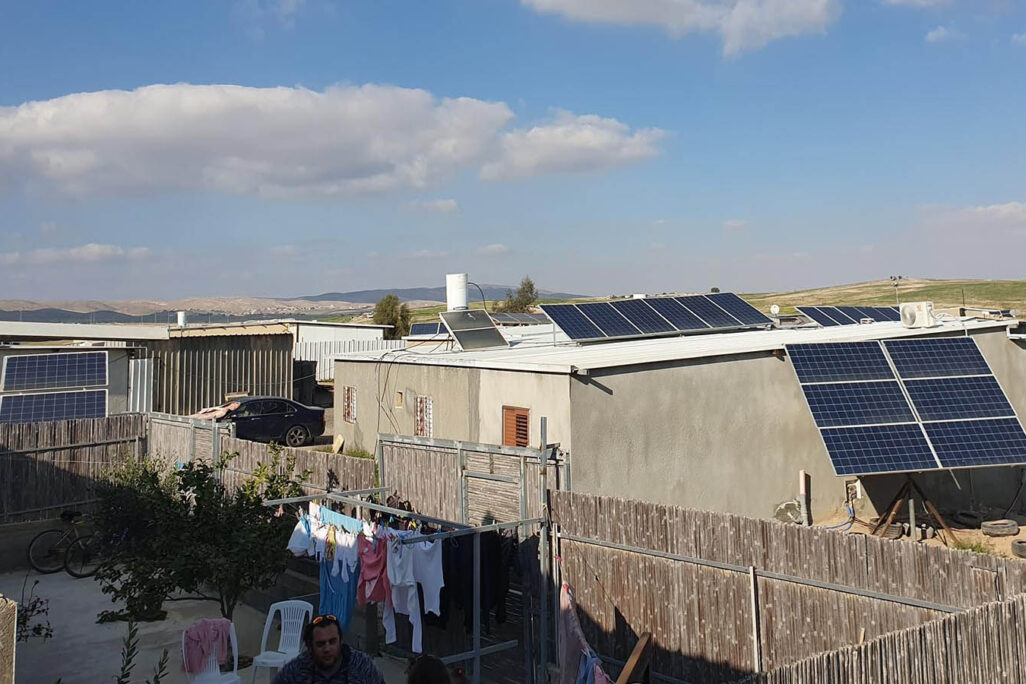
Although the Bedouin village of Al Sera is not recognized by the state, it has solar electricity, wireless internet, open satellite broadcasting, gray water for irrigation and traditional agriculture. Khalil al-Amor, recently retired teacher and village resident, hosts tourists in his bed and breakfast, where he demonstrates how traditional Bedouin culture goes hand in hand with technology, though not with city life.
Khalil al-Amor (56) has a bachelor’s degree in law and a master’s degree in education administration, but these days, he is developing his Bedouin hospitality business, and is also taking a course to become a trail guide.
"Maybe now Emiratis and Bahrainis will come. We will take them for walks on the Temple Mount, and maybe they will also stay with us. I don't know if they will want to stay in a tent, or only 7 star hotels," he joked. al-Amor has two accommodation units, and a large Bedouin tent for overnight stays. "We have over 70 ratings on a high-scoring booking site," he added.
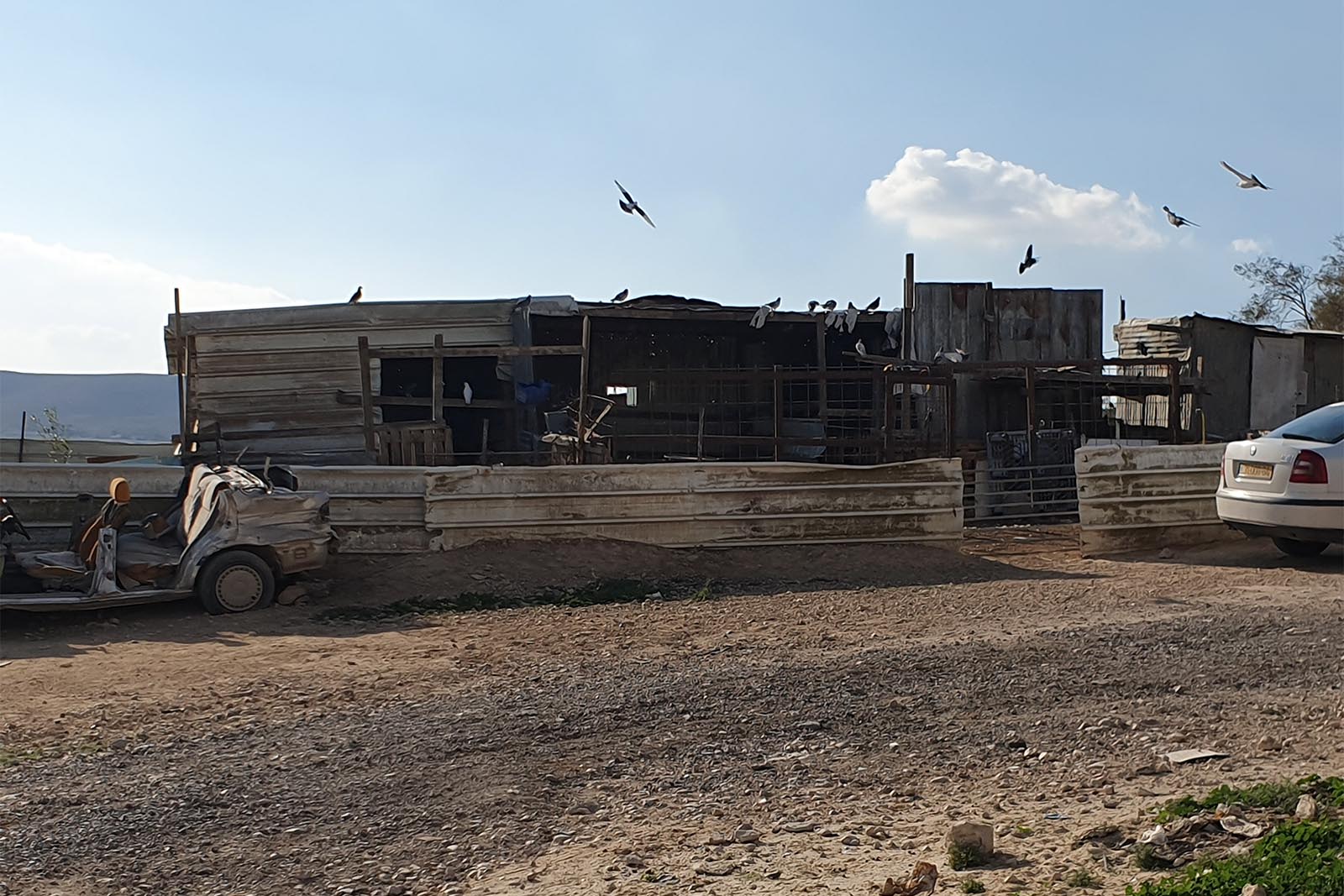
Tourists from abroad have visited the bed and breakfast, but mostly Jewish tourists come from inside Israel.
"For us, this is another opportunity to explain to Jewish guests the challenges of the unrecognized villages in the Negev, as well as my opinions on the subject,” al-Amor said. “We want recognition for all the unrecognized villages. It's time. We lived here before the establishment of the state, the state arose after many difficulties, and it is time for Israel to appreciate our difficulties, our loyalty, and recognize us.”
al-Amor explained that the village is made up of 500 people, 75 families total. In his family, which has been in the village for seven generations, he is one of 15 siblings and has seven children of his own (four sons and three daughters). He owns 200 dunams of land that has been passed down by his great grandfather.
Bedouin villages, concentrated mostly in the Negev and in the Galilee, are often unrecognized as official settlements, as they were built without official recognition and permits, or existed pre-state. Because of their unrecognized status, they do not receive services such as electricity, water and trash pickup. According to the Israel Land Association, about 60% of Negev Bedouins live in seven recognized towns, while 40% live in unrecognized villages.
Many villages have struggled against the state’s efforts to evict the residents. The state has attempted to resettle the agricultural communities, and in extreme situations, approved by court-order, will demolish villages seen as being built without permission on state land. Al Sera fought an eviction attempt in 2006, and succeeded.
“We objected in the Magistrate's Court and he revoked the orders. The state appealed to the district, and he also revoked the orders,” al-Amor explained “We were under tremendous stress over whether we would have to go to the High Court as well. In the end, they did not appeal, probably because they were afraid.”
“The judges said there was no reason to justify the demolition of an entire village,” he continued. “Our village existed before the establishment of the state. A strong and clear public demand is required to evacuate such a village."
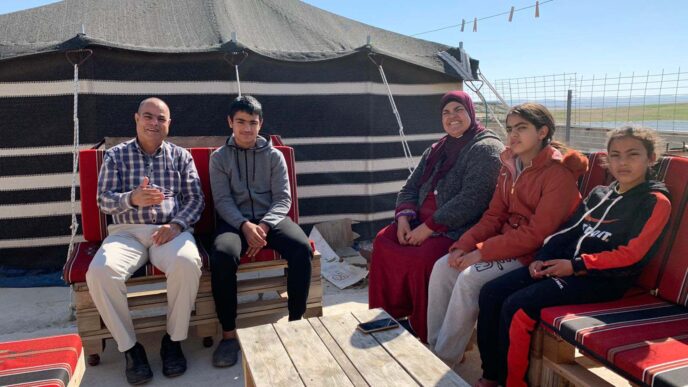
al-Amor sustains himself and his family in an environmental lifestyle, both as an active choice and as a way to deal with the lack of access to resources. With the exception of a water pipe that reaches the village, all other infrastructure is provided via independent construction, without state recognition.
Electrical power
"We were the pioneers of the solar sector. We had already started in 2003," al-Amor said. "Today, the whole village has solar panels. There is also a storage system of batteries that store the excess energy for night-time use. The fridge and TV work all the time. Also computers, if anyone needs to study late.”
"I grew up without electricity, with a small lantern, which is still in our tent,” he continued. “We have to be careful with our electricity use, there’s a reason there are only few air conditioners in the village. We do not buy power-hungry appliances like heaters. We use microwaves only for seconds, not minutes. All children know about the batteries’ charge. If we don’t have enough, we know how to turn off devices.”
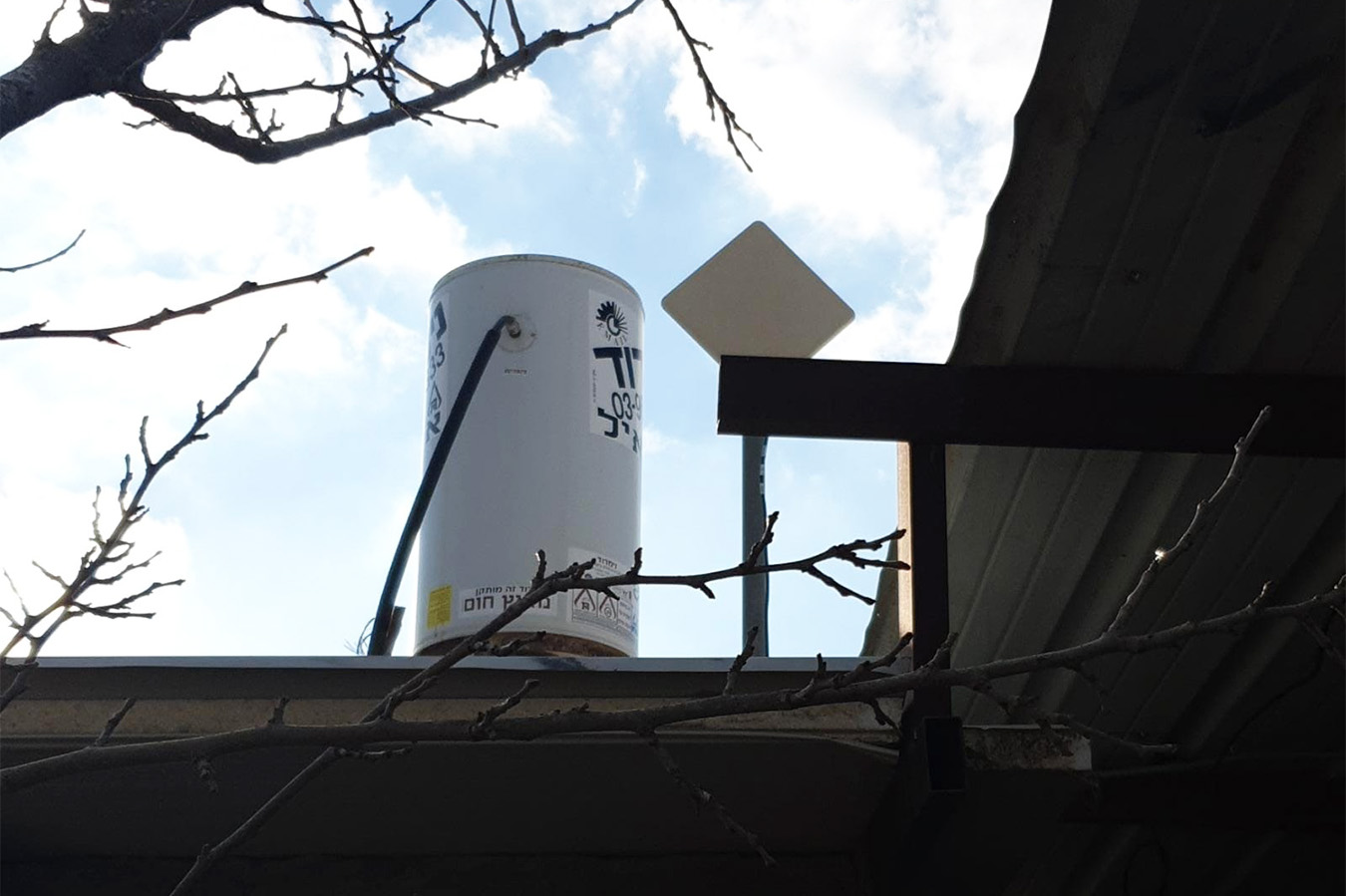
al-Amor goes on to explain that the village also has a 30-kilowatt generator, but they only use it a few times a year, after consecutive days of rainy or cloudy weather, and when there is a wedding celebration with sound and lighting. He adds that the village also has a small wind turbine, which produces a small amount of electricity.
Water
According to al-Amor, water is provided via a water pipeline here that we hooked up 20 years ago in cooperation with the local government in nearby Kuseife
"When I was growing up, my mother would drive 5 kilometers in each direction to fetch jerry cans of water with a donkey,” he recalled. “Today, we have solar water heaters. My bed and breakfast guests also have gas water heaters. In the future, we will replace them with more efficient boilers.”
He explains the run-off water in the gutters is drained into a water tank that is then used for irrigation. al-Amor’s brother, who has an olive grove, channels rainwater runoff from ditches to irrigate the trees.
Internet and TV
"I pay for a 40-megabyte line that connects to the mosque in Kuseife," he explains. "I installed a transmitter there from the Israeli company Alvarion. I bought a used one near Hebron [in the West Bank]. I could not find such equipment in Israel. It transmits from the tower of the mosque to the shelter on my roof. We get about 25 megabytes, from almost 10 kilometers away."
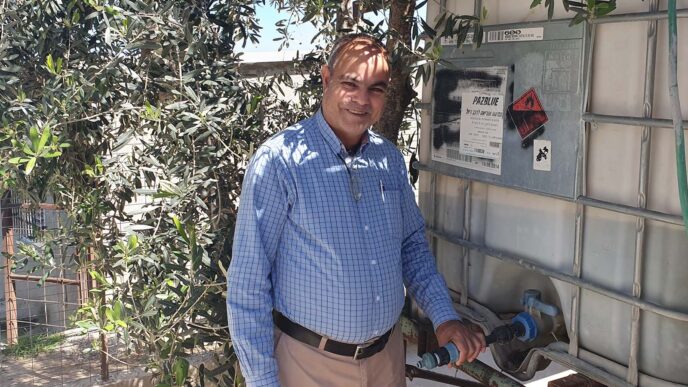
TV broadcasts also reach the village via satellite dish.
"It requires professional installation to set them up, and we have a decoder next to the TV,” he explained. “We receive 700 channels from all shows, open broadcasts, without subscription fees, including the Israeli channels. My son subscribed to a sports channel for a year."
Sewage and heating
"We have septic tanks," said al-Amor. "Once in a while we pay for their pumping. We turn the organic waste into compost."
"We use a gas stove, until we go to sleep and turn it off," he said. "I bring the gas from Kuseife or they bring them to me here."
al-Amor explains why he wants recognition from the state for his village, not to be relocated to a town. According to him, the Bedouin rural way of life is important in its tradition, but can be combined with technology for a more modern life.
"We want a variety of ways to make a living, both rural and agricultural, not just urban,” he said. “Urbanity destroys culture and heritage. Our culture is becoming extinct, and it pains me. In your lifetime, you will see that we will become a memory, that is my prediction.”
“But our culture can be combined with advanced technology,” he concluded.






